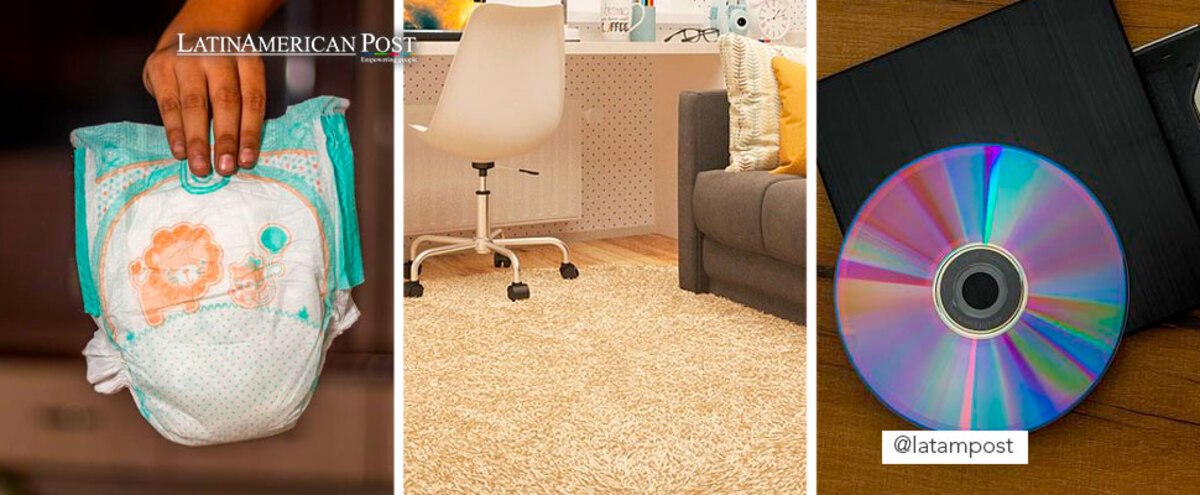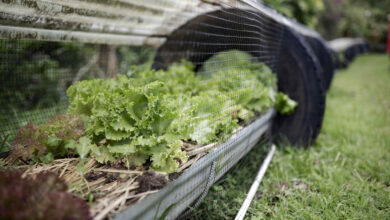10 Objects You Didn’t Know Can Be Recycled

Photos: Pixabay
LatinAmerican Post | Julieta Gutiérrez
Listen to this article
Leer en español: 10 objetos que se pueden reciclar y probablemente no lo sabías
Recycling is one of the habits that are increasingly necessary to incorporate into our daily lives to reduce the negative effects of pollution
From the great environmental problem generated by garbage dumps or oceans contaminated with plastic waste, the need to reuse many products was born. Well, thanks to this healthy practice, it is possible to reduce the use of new raw materials; there are water and energy savings, and pollution is reduced. It is for this reason that on this occasion we will present you 10 items that we use daily, which can be recycled.
Diapers:
Disposable diapers are highly polluting products because they can take up to 500 years to decompose. For this reason, companies dedicated to recycling diapers have been created. According to Rosa García, director of the Foundation for Waste Prevention and Responsible Consumption, a British company called Knowaste recycles around 36,000 tons of diapers a year. This practice reduces the environmental impact caused by these products by 70%.
Carpets:
According to the International Fund for Agricultural Development IFAD, most carpets can be recycled and turned into a new products. But how should we recycle them? FIDA recommends alternatives such as taking them to a local rug salvage facility, donating them to a friend, or repurposing them at home; as a plant stand, a place to do yoga or a space for your pet to rest. This in order to avoid the arrival of more carpets to landfills.
Electronic devices:
In many homes, there is a diversity of electronic devices such as cell phones, computers, televisions, refrigerators, and other devices that apparently no longer work. However, according to the NGO Word Wildlife Fund (WWF), or in Spanish World Wide Fund for Nature, 90% of the materials that make up an electronic device are recyclable. Since metals such as copper, iron, and gold can be extracted from these objects. So if you have a cell phone, tablet or computer that you definitely no longer use, don't leave it rotting in your house. WWF invites us to be part of the solution, taking electrical appliances to a green point in the city, where they can carry out the recycling process. For example, the Puntos Verdes Foundation in Colombia has containers to store electronic devices in several cities in the country.
Face mask:
According to the World Wide Fund for Nature, about 10 million masks are scattered around the planet and take approximately 400 years to decompose. And although George Leonard, the scientific director of the Ocean Conservancy, an NGO that promotes environmental defense, affirms that face masks cannot be recycled because they are made of different layers and types of plastics that would have to be separated; Enterprises have been created that question this reality. This is the case of some Colombian Business Administration students who created a project called VIDKO, where they turn safety utensils such as masks into sports shirts.
Clothing:
Believe it or not, jeans, shirts, jackets, and more can have a cost that goes beyond their label. Well, according to the NGO WWF, the fashion industry is the second largest consumer of water on the planet. This is why several ways have been created to recycle your clothes, such as turning them into a kitchen towel, a shopping bag or personalizing them.
Wine corks:
Little is known about how to recycle this item after use. And the truth is that wine corks are reusable because several new objects and materials can be made with them.
According to the Spanish non-profit organization Ecoembes, one option is to recycle corks to produce various crafts such as paintings and pots. The second option is to look for companies like Recycled Cork that are dedicated to recycling these objects.
CD's:
Although many do not believe it, recycling old CDs is possible. Well, according to the Colombian Ecological Organization Trébola, compact discs or CDs are made of 98% polycarbonate, which is a plastic that can be given many uses. Like making new plastics or reusing them from home, to make a wall clock, a table with CD mosaics or creating Christmas decorations.
Batteries or batteries:
The NGO WWF ensures that used batteries contain metals such as mercury or lead. Which are very toxic to human life and the environment. For this reason, you should look for a battery collection point so that they can give it the appropriate treatment there.
Wood:
One of the most recycled materials in Latin America, according to the Inter-American Development Bank (IDB), is organic waste. And wood is biodegradable. This makes its recycling one of the easiest and cheapest. Well, with them you can generate electricity, create compost or give it livestock uses.




